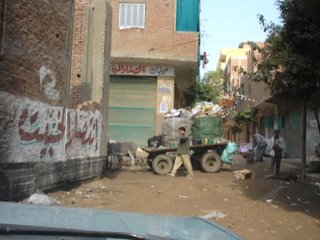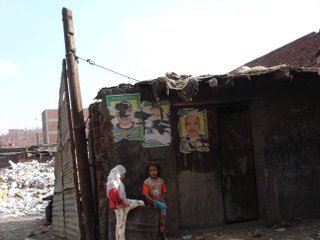
Surrounded by 15 foot walls isolated from the rest of the world, 200,000 families making up a population of 1 million, live in garbage. Ezbet El Nakhel is "Garbage City".
The smell is powerful, the sights dramatic. Flies are everywhere, animals eating garbage, donkeys pulling carts of loaded garbage, children playing in garbage, houses filled with garbage, and streets with raw sewage.

And in the midst of all this is "Joy School", a Mission of Mercy safe haven for children. That is where we are building our next medical clinic: on the 4th floor. That is where I am g
 oing in a week and a half to buy the medicines, the medical equipment, assess the construction of the clinic, and meet with my 2 brothers, Peter Omran and Nabil Farouk. Once again, He has spoken, and we obey. We are moving quickly to get this all done: a Medical Mercy team leaves the US on Feb. 13th for our first medical clinic in Egypt.
oing in a week and a half to buy the medicines, the medical equipment, assess the construction of the clinic, and meet with my 2 brothers, Peter Omran and Nabil Farouk. Once again, He has spoken, and we obey. We are moving quickly to get this all done: a Medical Mercy team leaves the US on Feb. 13th for our first medical clinic in Egypt.Can it be done? Will it be ready? Will we be ready? Go ahead....try and stop us.
In all things, give thanks,
David